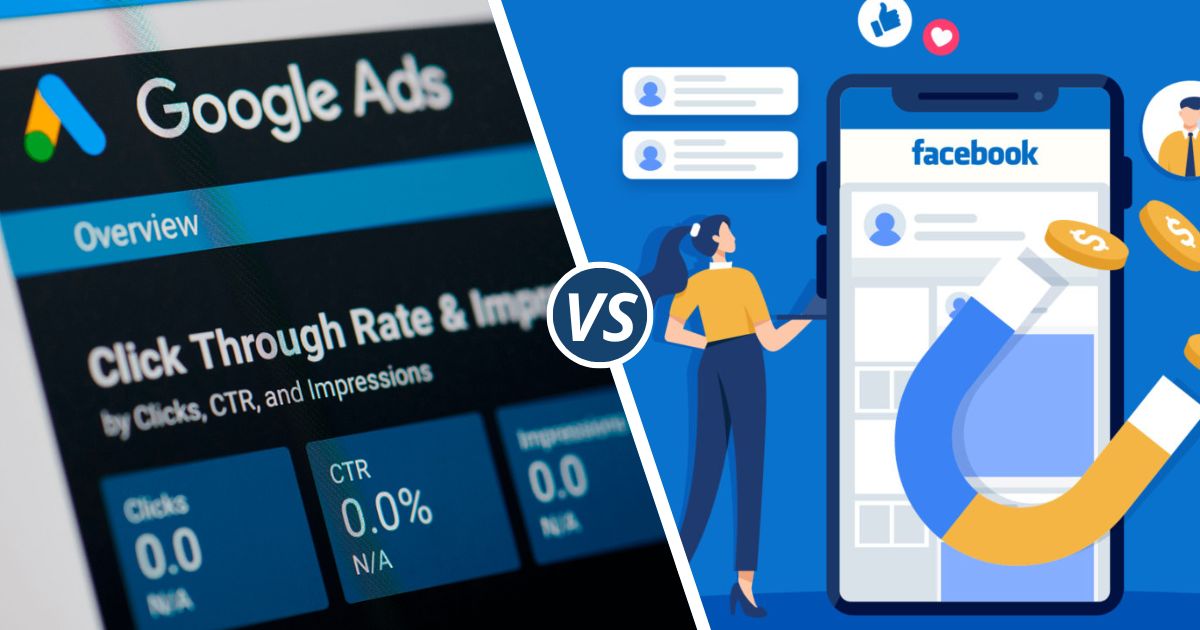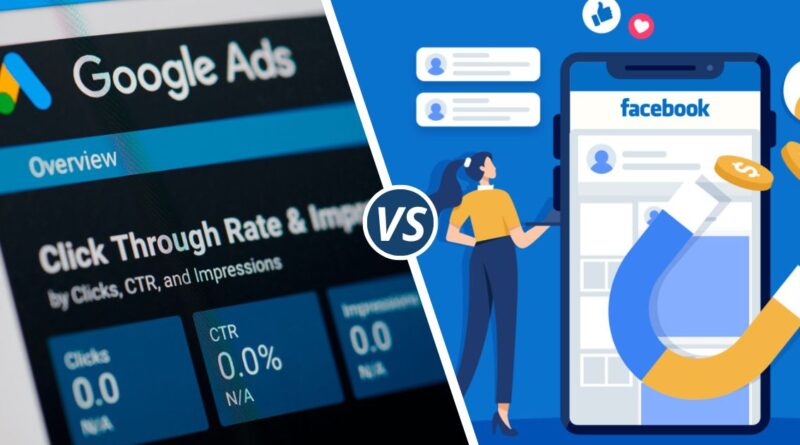Google Ads or Facebook Ads: What’s Right for You?
Google Ads or Facebook Ads: Which One is Better?
Google Ads Overview
Google Ads is an advertising platform developed by Google, where businesses can bid on keywords to have their ads displayed on Google’s search engine results pages (SERPs) and across the Google Display Network. The platform offers several types of ads:
- Search Ads: Text ads that appear on Google’s search results pages when users search for specific keywords. These ads are highly targeted as they appear based on the search intent.
- Display Ads: Visual ads that appear on websites within the Google Display Network, reaching users as they browse various sites.
- Video Ads: Ads that play before or during YouTube videos or on other video content across the web.
Google Ads is ideal for capturing high-intent traffic, as users are often actively searching for solutions to their problems. The platform provides detailed metrics and reporting tools, allowing advertisers to track performance and optimize their campaigns for better results.
Facebook Ads Overview
Facebook Ads is a powerful advertising platform integrated within the Facebook ecosystem, which includes Facebook, Instagram, Messenger, and the Audience Network. It offers various ad formats, including:
- Image Ads: Simple ads with a single image designed to capture attention.
- Video Ads: Engaging video content that can appear in users’ feeds or stories.
- Carousel Ads: Ads featuring multiple images or videos that users can swipe through.
- Slideshow Ads: Lightweight video ads created from a series of images.
Facebook Ads excels in audience targeting through its extensive data on users’ interests, behaviors, and demographics. Advertisers can create highly specific audience segments, making it easier to reach potential customers who are likely to be interested in their products or services.
Targeting Comparison
One of the key differences between Google Ads and Facebook Ads is how they target users:
- Google Ads: Focuses on intent-based targeting. Users see ads based on their search queries, which means the platform is effective for reaching people actively looking for information or solutions. This can lead to higher conversion rates for businesses targeting users with specific purchase intent.
- Facebook Ads: Utilizes interest-based targeting. The platform allows advertisers to target users based on their interests, behaviors, and demographics. This makes it ideal for building brand awareness and engaging users who may not yet be actively searching for a product or service but could be interested in it.
Costs and ROI
Understanding the cost structures and potential ROI for both platforms is crucial for making an informed decision:
- Google Ads: Operates on a pay-per-click (PPC) model, where advertisers pay each time a user clicks on their ad. The cost per click (CPC) can vary widely depending on the competition for keywords and the industry. Google Ads can offer high ROI if managed effectively, especially for keywords with strong commercial intent.
- Facebook Ads: Generally follows a cost-per-impression (CPM) or cost-per-click (CPC) model. Costs can be lower compared to Google Ads, but the ROI depends on the quality of targeting and the effectiveness of ad creative. Facebook Ads are particularly effective for brand awareness and engagement campaigns, where the goal is to reach a large audience at a lower cost.
Google Ads or Facebook Ads: Recommendations by Business Type
Choosing the right platform depends on your business type and marketing objectives:
- Local Businesses: Google Ads is often more effective for local businesses looking to capture high-intent traffic from users searching for services in their area.
- E-commerce: Both platforms can be beneficial. Google Ads helps capture users with strong purchase intent, while Facebook Ads can drive brand awareness and retarget users who have previously interacted with your brand.
- Service-Based Businesses: Google Ads can drive immediate leads through search ads, while Facebook Ads can be used to build brand recognition and engage with potential customers.
- Startups: Facebook Ads might be more cost-effective for startups looking to build a customer base and generate initial interest.
- Established Brands: Both platforms can be valuable. Google Ads can help maintain search visibility, while Facebook Ads can enhance customer loyalty and engagement.


